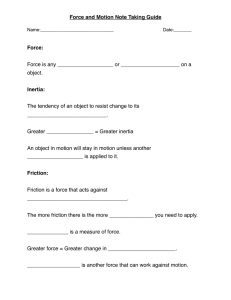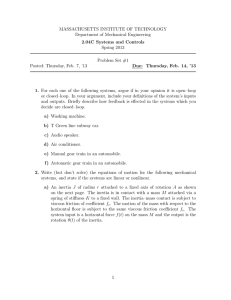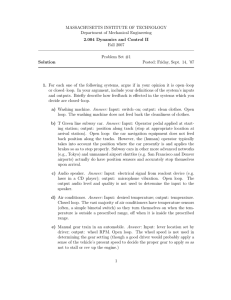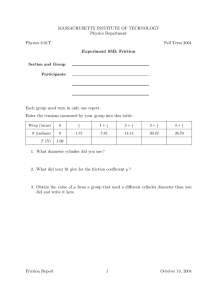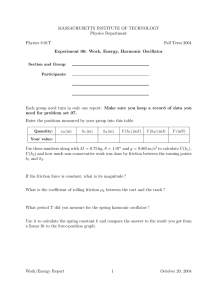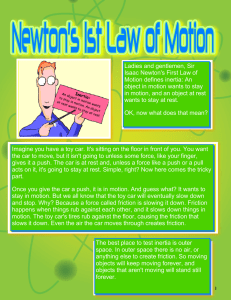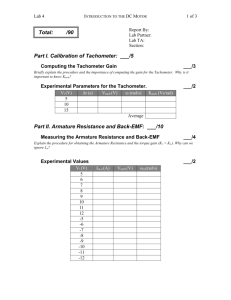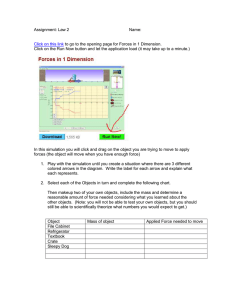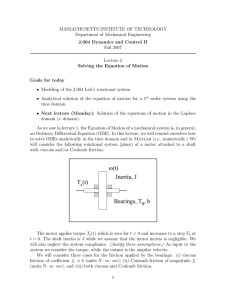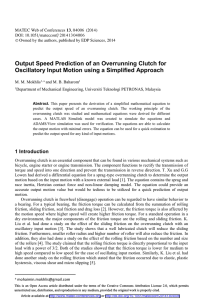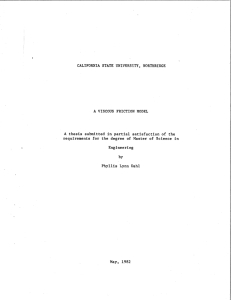Document 13664348
advertisement
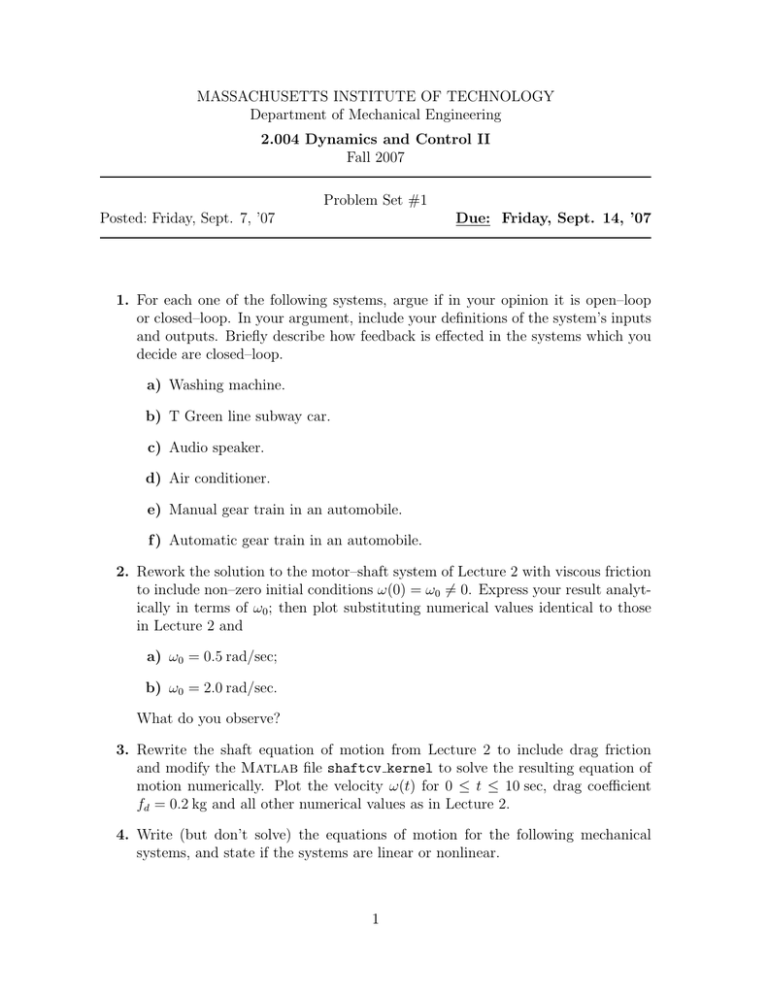
MASSACHUSETTS INSTITUTE OF TECHNOLOGY Department of Mechanical Engineering 2.004 Dynamics and Control II Fall 2007 Problem Set #1 Posted: Friday, Sept. 7, ’07 Due: Friday, Sept. 14, ’07 1. For each one of the following systems, argue if in your opinion it is open–loop or closed–loop. In your argument, include your definitions of the system’s inputs and outputs. Briefly describe how feedback is effected in the systems which you decide are closed–loop. a) Washing machine. b) T Green line subway car. c) Audio speaker. d) Air conditioner. e) Manual gear train in an automobile. f ) Automatic gear train in an automobile. 2. Rework the solution to the motor–shaft system of Lecture 2 with viscous friction to include non–zero initial conditions ω(0) = ω0 = � 0. Express your result analyt­ ically in terms of ω0 ; then plot substituting numerical values identical to those in Lecture 2 and a) ω0 = 0.5 rad/sec; b) ω0 = 2.0 rad/sec. What do you observe? 3. Rewrite the shaft equation of motion from Lecture 2 to include drag friction and modify the Matlab file shaftcv kernel to solve the resulting equation of motion numerically. Plot the velocity ω(t) for 0 ≤ t ≤ 10 sec, drag coefficient fd = 0.2 kg and all other numerical values as in Lecture 2. 4. Write (but don’t solve) the equations of motion for the following mechanical systems, and state if the systems are linear or nonlinear. 1 a) An inertia J of radius r attached to a fixed axis of rotation A as shown below. The inertia is in contact with a mass M attached via a spring of stiffness K t o a fixed wall. The inertia-mass contact is subject t o viscous friction of coefficient f,. The motion of the mass with respect t o the horizontal floor is subject t o the same viscous friction coefficient f,. The system input is a horizontal force f ( t )on the mass M and the output is the rotation Q ( t )of the inertia. b) A pendulum consisting of a mass m attached to a rigid mass-less rod as shown below. The system input is a horizontal external force and the output is the angle 8. external force (inyt) 4~ 1 rn 0 ~ t gravity 5. Given below are the equations of motion for several systems. f ( t ) denotes the external force (i.e., input). Which of these systems are linear? Include a brief justification based on the definition of linear systems from Lecture 1.
